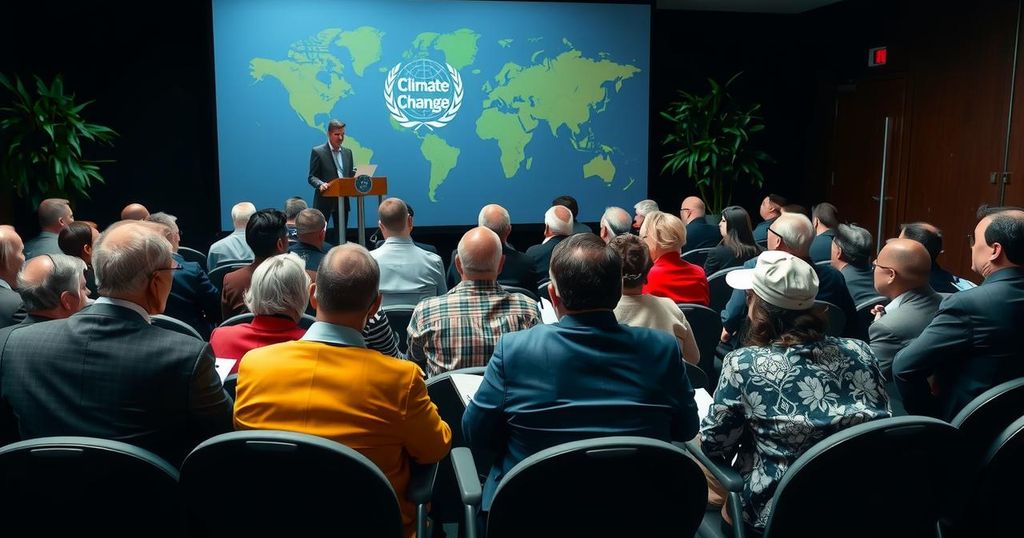COP29 Highlights Structural Flaws in UN Climate Negotiations

COP29 recently concluded in Azerbaijan, raising doubts about the UN’s climate change negotiation efficacy. Experts predict greater than 3°C of warming, attributing it to insufficient financial commitments from affluent nations towards low-emission strategies for developing countries. The debate over definitions and implementations of climate finance continues, alongside challenges regarding the reliance on fossil fuels and carbon market rules, highlighting structural flaws in the COP process.
The recent conclusion of COP29, the 29th annual UN climate conference held in Azerbaijan, has cast doubt on the efficacy of the UN’s climate negotiation process. Climate experts express concerns that the current strategies are inadequate, projecting a future of global warming exceeding 3°C. While the conference set a goal to significantly increase financial support for climate-vulnerable nations, the commitments made fall short of the requested funding and lack proper implementation as grants without strings attached. The definition of “climate finance” remains ambiguous, with rich countries favoring a combination of loans and grants, complicating the financial landscape for poorer nations.
The private sector is expected to bridge a $1.3 trillion funding gap, but its reliability is questioned, particularly in addressing existing climate damages. Projected climate finance often takes the form of loans, which escalate the financial burdens of struggling countries, particularly in the Pacific. Research indicates that the countries most vulnerable to climate change contribute minimally to global emissions yet suffer disproportionately from climate-related losses. A fairer financial structure, such as the “polluter pays” principle, could enable more equitable redistributions of wealth and resources.
Significant challenges persist in reducing reliance on fossil fuels despite COP28’s commitments to phase them out. COP29 exhibited setbacks, with host-country biases hindering progress. Global carbon trading market frameworks were agreed upon despite ongoing concerns regarding their efficacy and regulation. Standards set for carbon credit issuance remain contentious and fail to ensure environmental justice. Many experts characterize the COP process as fundamentally flawed but acknowledge it as the only international platform to facilitate discussions on climate action. Advocates stress the need for increased cooperation among major emitters and a focus on immediate climate risks as changes become increasingly urgent.
The UN climate conferences, particularly those under the framework of the United Nations Framework Convention on Climate Change (UNFCCC), serve as pivotal forums for international dialogue on addressing climate change. The complexity of negotiations often reflects deeper systemic issues, such as disparities between developed and developing nations regarding responsibility and resource allocation in climate finance. The recent COP29 highlighted longstanding issues within these discussions and raised alarms about the sufficiency and clarity of commitments made by wealthier nations to support vulnerable countries affected by climate change. The dynamics of climate finance and the effectiveness of proposed carbon market solutions also emerged as significant topics of discussion, revealing a need for improved governance and accountability to bolster global climate action.
In summary, COP29 has unveiled significant shortcomings in the UN climate negotiation process, casting doubt on the mechanisms in place to combat global warming. The financial commitments made remain inadequate, reflecting a persistent imbalance in climate finance that disproportionately affects developing nations. Furthermore, challenges with fossil fuel dependency and ineffective regulations on carbon trading continue to hinder progress. The call for a more just and equitable approach, as well as enhanced cooperation among nations, is imperative to effectively tackle the climate crisis in the coming years.
Original Source: www.downtoearth.org.in






